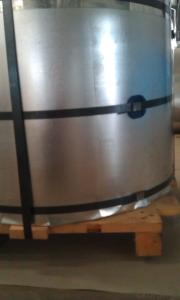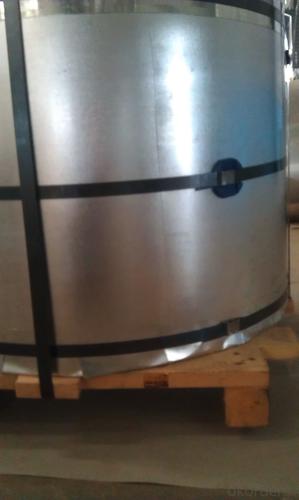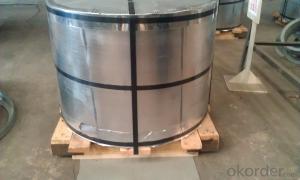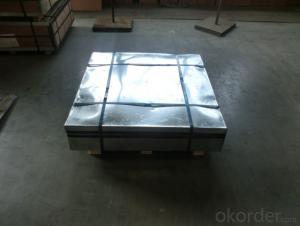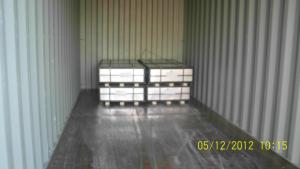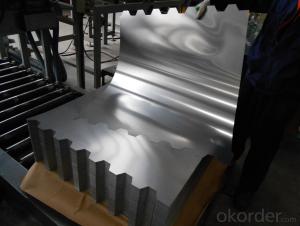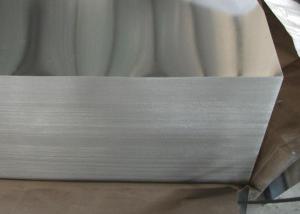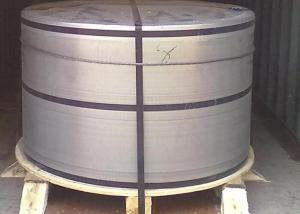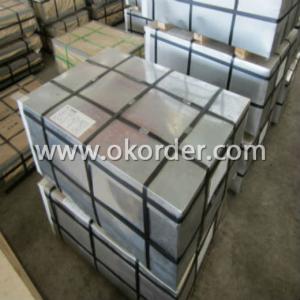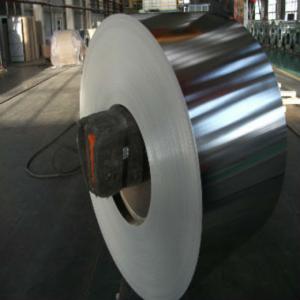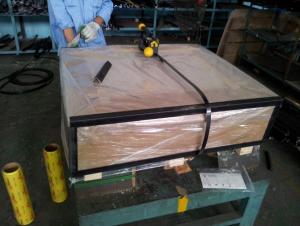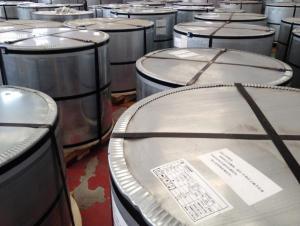Quality Tin Free Steel TFS
- Loading Port:
- China Main Port
- Payment Terms:
- TT OR LC
- Min Order Qty:
- -
- Supply Capability:
- -
OKorder Service Pledge
OKorder Financial Service
You Might Also Like
Tin Free Steel (TFS)
Is also known as chromed steel, as it is obtained by coating the metal base (low-carbon steel) with an ultra-thin layer of metallic chrome and then with a chromium oxide layer.This steel product was developed to meet economic requirements, and excels tinplate in paintability, paint adhesion, and economy. It is widely used for making beverage cans and 18-liter cans. It is also used for making photographic film cases and as a protective material for optical fiber cables.
Our TFS Specification:
Standard: AISI, ASTM, BS, DIN, GB, JIS
Material: MR,SPCC
Thickness:0.15mm - 0.45mm
Width: 600mm -1150mm
Temper: T1-T5
Annealing: BA & CA
Coil Inner Diameter: 508mm
Weight: 6-10 tons/coil 1~1.7 tons/sheets bundle
Oil: DOS
Surface: Finish,bright,stone,matte,silver
Packing:
1、For sheets: plastic or waterproof paper, metallic cover and angles, steel strips,wooden pallet.
2、For Coils: plastic or waterproof paper,plastic protect plate,steel strips.
Both Prime and Second Quality Are Available!!!
- Q: How does tinplate perform in terms of resistance to chemical agents?
- Tinplate demonstrates good resistance to chemical agents due to its protective tin coating, which acts as a barrier against corrosion and interaction with various substances.
- Q: Is tinplate resistant to corrosion?
- Yes, tinplate is highly resistant to corrosion due to the protective layer of tin that is electroplated onto the surface of the steel.
- Q: What are the cleaning agents suitable for tinplate?
- Some suitable cleaning agents for tinplate include mild dish soap, vinegar, and baking soda. It is important to avoid abrasive cleaners or harsh chemicals that can damage the tinplate surface.
- Q: What are the different methods of opening tinplate containers?
- There are several methods of opening tinplate containers, including using a can opener, a knife or scissors, a key, or even pulling off the pull-tab lid found on some cans.
- Q: How is tinplate coated with anti-tarnish materials?
- Tinplate is coated with anti-tarnish materials through a process called passivation. This involves applying a thin layer of protective coating onto the tinplate surface to prevent oxidation and tarnishing. The coating can be made from various materials such as organic compounds or inorganic substances like chrome or zinc, which create a barrier against moisture and other corrosive elements. This helps to maintain the aesthetic appeal and durability of the tinplate over time.
- Q: How is tinplate affected by humidity?
- Tinplate is highly susceptible to the effects of humidity. When exposed to high humidity levels, tinplate can undergo corrosion, leading to the formation of rust on its surface. This can compromise the integrity and appearance of the tinplate, making it less suitable for various applications. To prevent this, proper storage and handling practices, such as maintaining optimal humidity levels and providing adequate ventilation, are essential to protect tinplate from the negative effects of humidity.
- Q: Can tinplate be used for paint can packaging?
- Yes, tinplate can be used for paint can packaging. Tinplate is a commonly used material for making paint cans due to its durability, corrosion resistance, and ability to protect the paint from external factors. It is also easy to print on and provides a smooth surface for labeling and branding purposes.
- Q: How does tinplate perform in terms of mechanical strength and durability?
- Tinplate exhibits excellent mechanical strength and durability due to its unique composition and manufacturing process. The tin coating adds a protective layer that enhances its resistance to corrosion, making it highly durable even in harsh environments. Additionally, its inherent strength allows it to withstand mechanical stresses, making tinplate a reliable and long-lasting material for various applications.
- Q: Can tinplate be used for packaging of non-food products?
- Yes, tinplate can be used for packaging of non-food products. Tinplate is a versatile material that offers several advantages such as durability, corrosion resistance, and recyclability, making it suitable for packaging various non-food items such as cosmetics, electronics, chemicals, and more.
- Q: What details should I pay attention to when purchasing tinplate packing boxes?
- At present, many domestic buyers can in the face of supplier's first bid, don't know in the condition of love at bargain, or fixed price cut 20 percent off. This practice is very inappropriate, in the procurement of bargain is necessary, but have not thought about the hidden dangers after bargaining?.
Send your message to us
Quality Tin Free Steel TFS
- Loading Port:
- China Main Port
- Payment Terms:
- TT OR LC
- Min Order Qty:
- -
- Supply Capability:
- -
OKorder Service Pledge
OKorder Financial Service
Similar products
Hot products
Hot Searches
Related keywords
